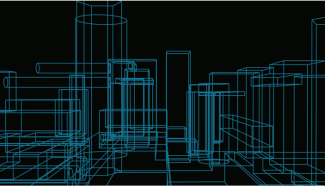Science, Technology and Innovation (STI) for Low Carbon and Resilient Cities: Training Workshop

As North-East Asian countries commit to carbon neutrality (Japan and the Republic of Korea by 2050, China and the Russian Federation by 2060), developing low carbon resilient cities serves as an important pathway for realizing national and local mitigation targets while assuring growth and improving the quality of life.
As part of a capacity building project developed by UNESCAP in collaboration with the Government of Mongolia, this training workshop increased the capacity of policymakers in national and local governments in Mongolia for developing low-carbon and resilient action plans at city levels through the application of various STI instruments.
The workshop took a case-study based approach to introduce good practices emerged in and beyond North-East Asia in various sectors with focus on leveraging STI to achieve low-carbon and resilient development at local level.
- Mr. Ganbold Baasanjav, Head of UNESCAP East and North-East Asia Office
- Ms. Ariuntuya D., Senior officer of International Cooperation Division, Ministry of Environment and Tourism of Mongolia
- Mr. Yeruult, Director of Climate Change Research and Cooperation Centre of Mongolia (CCRCC)
- Mr. Shu ZHU, ICLEI East Asia Regional Director
Online interactive tool will be used to encourage active participation among workshop attendees.
This session will introduce a conceptual framework and emerging technologies in key sectors to provide the participants an overview on STI as a means of implementation and source of solution to low-carbon resilient urban development. In addition, a presentation from Mongolia is invited to set the scene for the training.
Speakers:
- Introductory presentation by Ms. Qian Cheng, Associate Environmental Affairs Officer, ESCAP
- Introductory presentation by Ms. Bolortuya., Head of the Nature Resource Division of Environmental Department of Ulaanbaatar City, Mongolia
This session will introduce two case studies on the application of ICT technologies to support citizens and local communities to be informed and engaged in urban planning processes as well as the planning process of a housing complex to reduce the building energy consumption to lower local GHG emissions.
Speakers:
- Data-informed urban planning in Singapore, Mr. Daniel Hii, Research Fellow, School of Design and Environment, National University of Singapore
- Low-Carbon Projects in Korea, Ms. Myoungju LEE, Chief, Zero Energy Architecture Center, Myongji University
Joint discussion
Guiding questions:
- What are the main challenges faced by urban planning?
- Have any ICT measures been applied for urban planning in cities?
- How can building efficiency be considered in the planning process of a housing complex?
- How to address specific urban challenges through a long-term urban planning process?
- What are some of the active and passive technologies that can be considered for the locality?
This session will set the tone for sustainable urban mobility planning by looking at the public transportation planning journey of Seoul city. The session will focus on the public transportation reform, public bike-sharing system, and the role of technology in urban mobility in Seoul city.
Speakers:
- Seoul public bike-sharing Ttareungyi, Mr. Jin Woo JUN, Operation Team Manager, Public Bicycle Management Office, Seoul Facilities Corporation
- Hydrogen-use in transportation, Mr. Young In KWON, The Korea Transport Institute (KOTI), Sejong City, Korea
- Seoul Advanced Traffic Management System, Ms. Soo Jin LEE, Director, Traffic Information Division, Seoul Metropolitan Government
Joint discussion
Guiding questions:
- What are the main challenges and opportunities faced by implementing ITS in transport planning?
- What is the current thinking on public bike-sharing systems in major cities in Mongolia?
- Compare the different transportation modes and what makes sense for UB (the different transport mix and the cost-benefit analysis)?
- How to address transport emissions in terms of GHG and air pollution?
This session will introduce two distinct case studies that both transformed the urban space – one from land degradation into a sustainable and eco-friendly oasis in the desert region in Kubuqi, Inner Mongolia, China, and the other is 100% solar energy powered houses in Seoul.
Speakers:
- Elion Group Three-in-One PV Project for Clean Energy and Eco-Restoration, Kubuqi Desert, Mr. CAI Mantang, Associate Professor and Deputy Director, Beijing Development Institute, Peking University
- Sungdaegol’s Local Energy Transition Drive, Ms. Soyoung KIM, President, Seongdaegol Maeul Dot Cooperative
Joint discussion
Guiding questions:
- How to plan for a long-term climate action plan in cities?
- How does the energy transition support low-carbon and resilient development, with focus on coal transition?
- What are some of the specific interventions in looking at energy and energy efficiency e.g., the building sector, solar energy?
Coal production and steel manufacturing featured heavily in Essen’s past. The city is now transformed into the third greenest city in Germany, winning the European Green Capital 2017 for their impressive work on climate change mitigation and adaptation, local transport, and wastewater, amongst others. This session will dive into Essen’s urban transition process at city and district-levels, including the design and operation of the transcity emission trading scheme (ETS).
Case studies to be introduced:
- From Grey to Green Transition, Essen, Germany
- TRANSCITY Social Emission Trading Scheme, Essen, Germany
Speaker: Mr. Sebastian Schleht, Strategic Management, Environment Department, City of Essen, Germany
Joint discussion
Guiding questions:
- Where can cities in Mongolia start on low-carbon development?
- How did Essen consider SDGs in the planning process?
- How did Essen address the economy and socio-economic challenges in the urban transition process?
- How to encourage cross-sectoral collaboration and the institutional structure that made it work?


 Back to Meetings
Back to Meetings